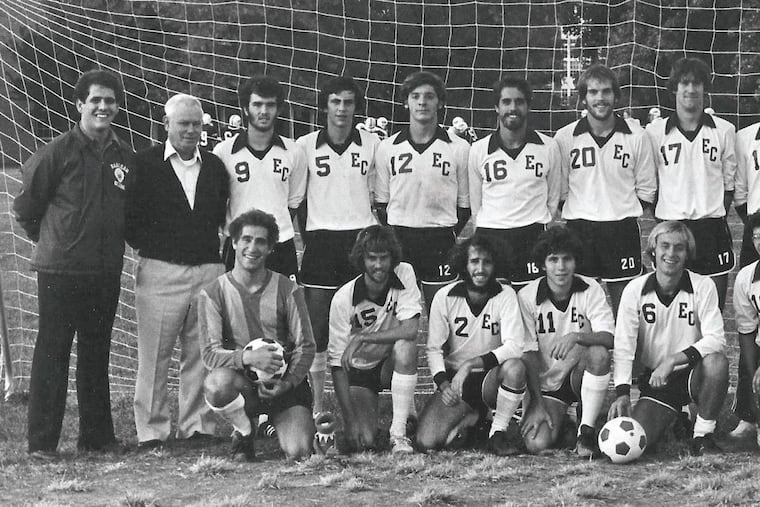For college athletes, winning shouldn't be everything | Opinion
I was fortunate to be a student-athlete at a small Quaker liberal arts school in the late 1970s, when college sports still emphasized character development.

The recent charges filed against assistant basketball coaches at Arizona, Auburn, Oklahoma State, and Southern California for allegedly taking bribes to pressure high-school athletes to play at certain universities is just the latest scandal to hit the National Collegiate Athletic Association.
The NCAA has a long history of point-shaving, recruiting violations, and Ponzi schemes. Most of the problems can be traced to the huge financial profits involved in Division I athletics as well as the "win-at-all-costs" attitude that pervades all three levels of the NCAA.
That attitude and the ensuing scandals raise serious concerns about the degree to which the NCAA achieves its fundamental mission: to promote and develop character in college student-athletes.
I was fortunate to be a student-athlete at a small Quaker liberal arts school in the late 1970s, when college sports still emphasized character development. Earlham College in Richmond, Ind., was affiliated with the National Association of Intercollegiate Athletics, which placed more emphasis on academics and moral education than sports.
Earlham was among the first colleges to field a soccer team in the Midwest when the program began in 1949. The majority of players came from Quaker boarding schools on the East Coast. My teammates and I were extremely liberal compared with our opponents — all-American preppies who competed for more conservative schools like Purdue, Wabash, Ohio Wesleyan, and DePauw.
We basked in our nonconformity, inventing ways to assert our liberal mindset. We wore our hair long, grew beards, and fielded colorful characters who kept the team loose and in constant good humor.
Prior to games we ran a warm-up lap around the field while singing the theme song to Gilligan's Island. It was followed by a unique pregame ritual called "Zigimosa," which consisted of bongo-drum playing and the sprinkling of dirt from our mole-infested playing field. Of course our opponents and their fans heckled us. But we often got the last laugh at game's end with a one- or two-goal victory.
There were no perks — no athletic scholarships, "paper courses" solely created to benefit athletes, or even a free pair of soccer cleats. If we won a road game, our reward was a meal at the Ponderosa Steakhouse. But mostly we played for the personal reward of being part of something much larger than ourselves.
What made Earlham soccer so successful — both on and off the playing field — was Charlie Matlack, a soft-spoken Spanish professor who coached the team.
Between 1954 and 1978, Charlie, an all-American midfielder at Haverford College in the 1940s, led Earlham to 169 victories, six conference titles, two state and seven district crowns, and a national championship in 1963. Impressive as those achievements are, they hardly defined Matlack.
Charlie viewed college sports as a vehicle to cultivate qualities in his players that would help them make a constructive contribution to a changing world. He was a teacher-coach who knew how to engage his student-athletes, physically and intellectually, how to listen to their concerns, and how to get them to listen to each other. I cannot ever recall him embarrassing a player by yelling at him during a game or practice.
Charlie taught us to think for ourselves, to be accountable to each other and to the team. He really didn't care as much about winning games as he did about us as human beings and building unity within a team that was composed of blacks and whites, Christians and Jews, Americans and foreigners.
He taught us that "winning" is the easy part once a team disciplines itself to give the extra effort, to care about each other and to place team success above individual achievement. That athletic competition is a learning process for all student-athletes. Some learn more quickly than others and often those teams who learn most effectively win games.
Today winning appears to be the only objective of intercollegiate athletics. Some coaches pay lip service to character development but define success by championship titles and the financial gain that often accompanies it. Such schools cheapen the fundamental purpose of intercollegiate sports: the education of young people.
William C. Kashatus is the author of "Suicide Squeeze: Taylor Hooton, Rob Garibaldi and the Fight Against Teenage Steroid Abuse" (Temple University Press). bill@historylive.net